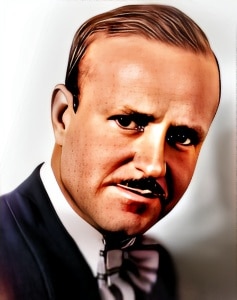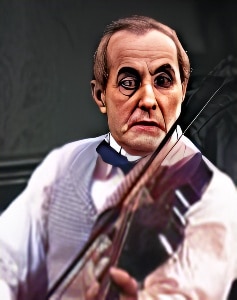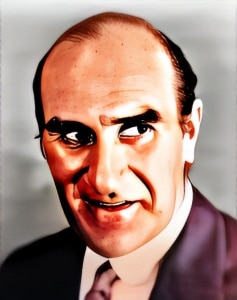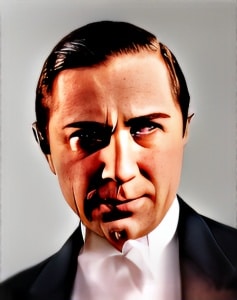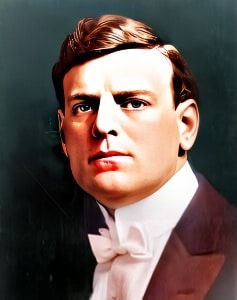 Gilbert M. “Broncho Billy” Anderson (1880-1971) was an American actor, director, and producer who played a pivotal role in the early years of the film industry.
Gilbert M. “Broncho Billy” Anderson (1880-1971) was an American actor, director, and producer who played a pivotal role in the early years of the film industry.
He is best known for creating the character “Broncho Billy,” one of the first Western heroes in film history. Anderson’s pioneering work helped shape the Western genre and laid the foundation for the future of cinema.
Born on March 21, 1880, in Little Rock, Arkansas, Anderson began his career as a traveling actor in vaudeville and repertory theater. His background in live performance gave him a strong foundation in acting and storytelling, which would prove invaluable in his transition to the silent film medium.
In 1903, Anderson was hired by Thomas Edison’s film company, the Edison Manufacturing Company, and he quickly became involved in the early days of filmmaking. He acted in a variety of short films and gained experience in front of the camera. He played notable roles in the iconic silent film “ The Great Train Robbery” (1903). In the film, he portrayed both a bandit and a shot passenger, marking one of his early contributions to the burgeoning film industry.
Anderson’s major breakthrough came when he co-founded the Essanay Film Manufacturing Company in Chicago with George K. Spoor. At Essanay, he created the character “Broncho Billy” – a cowboy and one of the first recurring characters in film history. This character would become iconic in the early Western film genre. Broncho Billy was a morally upright cowboy who stood as a symbol of heroism and justice, and Anderson portrayed him in numerous short films.
One of the defining features of Anderson’s work was his ability to wear multiple hats in the filmmaking process. He not only acted but also directed and produced many of the films in which he starred. This level of creative control was relatively unusual for the time and allowed him to have a significant influence on the narratives and storytelling of his films.
Anderson’s films often incorporated themes of justice, morality, and the triumph of good over evil. These values resonated with audiences of the time and contributed to the enduring popularity of the Western genre. His work helped establish some of the core elements of Western storytelling, such as the lone hero, the frontier setting, and the conflict between law and lawlessness.
In 1916, Anderson left Essanay and continued to work in the film industry, including producing and directing. Over the years, he made a significant impact on Hollywood, both as a filmmaker and as an actor. However, as the film industry continued to evolve, Anderson’s prominence waned.
In the latter part of his career, Anderson had a notable role in Charlie Chaplin’s film “The Great Dictator” (1940), marking a collaboration with one of the greatest comedians in film history.
Gilbert M. “Broncho Billy” Anderson’s contributions to the early film industry were pioneering and enduring. He played a crucial role in shaping the Western genre and establishing the archetype of the heroic cowboy. His work demonstrated the power of storytelling in cinema and showcased the potential for cinema to convey morality and justice on the big screen.
Gilbert M. Anderson passed away on January 20, 1971, but his legacy as “Broncho Billy” endures as an integral part of film history. His influence on the Western genre and the early days of cinema is celebrated as a vital chapter in the development of American film. Anderson’s pioneering spirit and dedication to storytelling continue to inspire filmmakers and audiences alike.
Loading live eBay listings...

